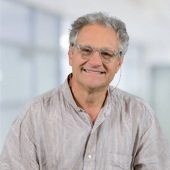
FREE LIVE REAL WORLD MASTERCLASS SERIES
Prof. Nawab Qizilbash
Senior Clinical Epidemiologist, Head of OXON Epidemiology and:
- Honorary Senior Lecturer in Epidemiology, London School of Hygiene and Tropical Medicine, London University
- Clinical Observer, Internal Medicine, Hospital Cantoblanco & La Princesa, Madrid
- Member of Green Templeton College, Oxford University
- Co-author of x8 Lancet, x1 JAMA and x3 BMJ publications in epidemiology, pragmatic trials and meta-analysis.
- Chief editor of 'Evidence-based Dementia Practice' published by Blackwells, Oxford.
- ENCePP Methods Guide: Primary author of the Annex on systematic review and meta-analysis of safety studies (revised in 2021 with a PRAC member) and co-author of the chapter on primary data collection studies.
Formerly, Nawab Qizilbash was Director of Clinical Epidemiology, GSK; he trained under and worked with Professor Sir Richard Peto F.R.S., (Inventor of: Logrank test, Peto one-step method for pooling odds ratios, adjustment for regression dilution, pioneered large simple trials, and individual-participant meta-analysis, and ´Peto's Paradox), and was the founding editor of the Cochrane Dementia Group. He also trained in general internal medicine and geriatrics under Professor Sir John Grimley Evans and was Honorary Consultant Physician at the Radcliffe Infirmary, Oxford.
Among CROs in Europe, Nawab provides sponsors with a rare combination of high quality epidemiological and clinical experience covering many therapeutic areas.

Mastering RWE Studies in the Healthcare Landscape of South Korea
Dr Ju Hwan Kim
Research Assistant Professor of Pharmacoepidemiology and Pharmacovigilance, School of Pharmacy, Sungkyunkwan University, South Korea.
Dr Ju Hwan Kim earned his PharmD from the Ernest Mario School of Pharmacy at Rutgers, The State University of New Jersey in 2017. He then received PhD in Pharmacoepidemiology at the School of Pharmacy, Sungkyunkwan University, South Korea in 2022. Currently, Dr. Kim serves as a Research Assistant Professor in the Department of Biohealth Regulatory Science at the School of Pharmacy, Sungkyunkwan University.
As both a pharmacoepidemiologist and clinical pharmacist, his research focuses on RWD and RWE generation, comparative effectiveness and safety research, vaccine safety evaluation, and clinical pharmacy and practice. A significant portion of Dr. Kim's published works center around the utilization of RWD in South Korea, leveraging databases such as the National Health Insurance System (NHIS) database, the Korea Immunization Registry Information System, and Electronic Health Records.

Mastering RWE Studies in the Healthcare Landscape of the UK
Prof. Thomas MacDonald
Professor of Clinical Pharmacology & Pharmacoepidemiology, University of Dundee, and Honorary Consultant Physician at Ninewells Hospital and Medical School.
Tom MacDonald is a Professor of Clinical Pharmacology & Pharmacoepidemiology at the University of Dundee and Honorary Consultant Physician at Ninewells Hospital & Medical School, Dundee, Scotland, UK, and current Director of MEMO Research and the Hypertension Research Centre (HRC) within the Medical School at the University, which has access to the MEMO and the CPRD databases.
He is active in a number of learned societies and is a past president of both the International Society of Pharmacoepidemiology (ISPE) and the British & Irish Hypertension Society (BIHS) and Deputy Chair of the steering committee of the European Network of Centres for Pharmacoepidemiology and Pharmacovigilance (ENCePP).
His research interests are hypertension, cardiovascular disease, pharmacoepidemiology and drug safety and innovative trial designs. He has published extensively on drug safety, especially the safety of non-steroidal anti-inflammatory drugs (NSAIDs). He has also published many studies of hypertension and other cardiovascular risk factors and cardiovascular disorders.

Mastering RWE Studies in the Healthcare Landscape of Japan
Prof. Masao Iwagami
Clinical Epidemiologist and:
- Professor in the Institute of Medicine, University of Tsukuba, Japan,
- Honorary Assistant Professor in the Faculty of Epidemiology and Population Health, London School of Hygiene and Tropical Medicine (LSHTM), UK.
Dr Masao Iwagami graduated from the University of Tokyo in 2008, completed his internship and nephrology residency in Japanese hospitals, received the Educational Commission for Foreign Medical Graduates certificate in the USA in 2010, and worked as a Research Assistant Professor in the Department of Haemodialysis and Apheresis, the University of Tokyo Hospital in 2013.
He studied clinical epidemiology at the School of Public Health, the University of Tokyo in 2012, at MSc Epidemiology in 2013/2014 and PhD Epidemiology and Population Health in 2014-2018 at LSHTM.
He has received several awards (such as the Kidney International Reviewer-of-the-Year Award in 2021 and 2024) and published over 200 original articles in major journals (such as Lancet Healthy Longevity using the UK CPRD, Lancet Regional Health Western Pacific using the Medical Data Vision database in Japan, and Drug Safety using the JMDC database in Japan). He is the Associate Editor of Pharmacoepidemiology and Drug Safety, and editorial board member of Kidney International, as well as Journal of Epidemiology.

Mastering RWE Studies in the Healthcare Landscape of France
Dr Patrick Blin
Pharmaco-Epi Senior Consultant, SNDS expert and Vice-president of the Ethics and Scientific Committee for Health Research, Studies and Evaluations (CESREES)
Dr Patrick Blin (MD, MSc) is a public health physician and a biostatistician with 40 years of leadership in epidemiology and pharmaco-epidemiology. His main area of interest is the evaluation of the performance of drugs and devices in real world setting (Real World Evidence or RWE), especially using the SNDS French nationwide claims database, and link between clinical data and the SNDS, with a large experience in the application of high-dimensional propensity scores for comparative effectiveness and risk comparison studies.
He was born in Paris (France) and studied at the Bicêtre Faculty of Medicine of Paris Saclay University, followed by a Master of Biomathematics (Sorbonne university) with Professor Alain-Jacques Valleron, member of the French Academy of Sciences. After a year in an inter-African public health organization, he participated for 3 years in the establishment of a biostatistics department at the St Louis Paris University Hospital, before heading departments of biostatistics in the pharmaceutical industry for 3 years. He was then the scientific director of CRO specialized in epidemiology and pharmaco-epidemiology for about twenty years. During this period, he collaborated many times with the Bordeaux PharmacoEpi platform of the Bordeaux University in the early 1990s, and became its Scientific and Medical Director between 2012 and 2022. He is now an independent consultant in pharmacoepidemiology.
He has been appointed by decree, member of the Expert Committee for Health Research, Studies and Evaluations (CEREES), then to the Ethics and Scientific Committee for Health Research, Studies and Evaluations (CESREES), of which he is Vice-President since the beginning; Both committees reviewing scientific and public interest of studies using secondary data before CNIL French Data Protection Agency authorization. He is also a member of the National Commission for Research Involving Humans (CNRIPH). He has co-authored over 130 papers in peer-reviewed journals with more than 4,000 citations, and has been a member of the scientific committee for numerous epidemiology and pharmaco-epidemiology conferences.

Mastering RWE Studies in the Healthcare Landscape of Italy
Prof. Carlo Giaquinto
Professor and Head of the Referral Centre for Paediatric HIV infection, Department of Paediatrics, University of Padua and Principal Investigator of Pedianet.
Professor Carlo Giaquinto is head of several organisations including, Head of the Referral Centre for Paediatric HIV infection at the Department of Paediatrics of the University of Padua since 1993, Head of the Paediatric European network treatment AIDS (PENTA network) since 1994 and co-chair of the EU funded Network of Excellence TEDDY (Task Force in Europe for Drug Development in the Young). He is also president of the PENTA foundation, one of the most prominent scientific organisations dedicated to paediatric research, and chairman of the Paediatric Rotavirus European Committee (PROTECT) group. He is also the chair of the GRIP project (Global Research in Paediatrics) an EU funded network of Excellence.
Dr Giaquinto is the coordinator for various projects, including several social AIDS projects funded by the EU and by other international organisations both in Europe and Africa. He is the coordinator of Pedianet: a primary care paediatric database. He has served as an honorary senior lecturer in the centre for paediatric epidemiology and biostatistics of the Institute of Child Health in London since 2002.
Furthermore, he has more than 360 full papers published in peer review journals as main author, as main member pf the writing committee or as a main participant for collaborative research and has participated as speaker at more than 300 conferences and international workshops across the world.

Evaluation of Risk Minimization Measures
Prof. Antoine Pariente
Professor of Pharmacology, Pharmacoepidemiology and Pharmacovigilance, Director of the Department of Public Health & of the BPH AHeaD team - University of Bordeaux (ex-PRAC member)
Dr. Pariente did his MD in Pharmacology and Public Health and completed his training with a PhD in Pharmacoepidemiology focusing on population impact of drugs in dementia.
He is professor of Pharmacology, Pharmacoepidemiology and Pharmacovigilance at the University of Bordeaux, where he heads the Department of Public Health and the Bordeaux Population Health AHeaD (Assessing Health in a Digitalizing real-world setting) team created from the merging of the Pharmaco, ERIAS (headed by Gayo Diallo), and IETO (headed by Emmanuel Lagarde) teams.
Previously he headed the Bordeaux Pharmacovigilance Centre (2016 to 2021) and coordinated the DRUGS-SAFE (Drugs Systematized Assessment in Real-liFe Environment) French National Platform for Pharmacoepi, an academic platform which mission was to provide the French Agence nationale de Securité du Médicament with real-world evidence to support decision-making on drugs (2016 – 2019) In 2020, this platform was transformed into the DRUGS-SAFEr Academic Center for Pharmacoepi which aims to support both the ANSM and the French Health Insurance in their decision-making on drugs.
From 2016 to 2020, he chaired the Bordeaux Population Health research team “Pharmacoepidemioloy-Drugs and Population Health” and in 2018 he was appointed as a scientific independent expert towards the European Medicines Agency Pharmacovigilance Risk Assessment Committee (PRAC), where he was selected to chair the Interest Group for Impact of Pharmacovigilance regulatory Actions Assessment until 2021.

Mastering RWE Studies in the Healthcare Landscape of China: Harnessing big biobanks for precision medicine
Professor Zhengming Chen
Richard Peto Chair of Epidemiology, University of Oxford and Honorary Professor of Peking Union Medical College and Fudan University in China.
Professor Zhengming Chen is a Senior Research Fellow of Green Templeton College and Richard Peto Chair in Epidemiology at Nuffield Department of Population Health, University of Oxford.
Professor Chen qualified in medicine at Shanghai Medical University in 1983, followed by further postgraduate training in public health. He went to the UK in late 1987 and completed his DPhil in Epidemiology at the University of Oxford in 1991. He was awarded Sir Richard Doll Research Fellowship at Green College (now Green Templeton College) in 1993, an ad hominem Readership in Epidemiology in 1998 and an ad hominem Professorship of Epidemiology in 2006 by the University of Oxford. In 2022, he was appointed as Richard Peto Professor of Epidemiology.
Professor Chen’s main research focus concerns causes, prevention and treatment of major chronic disease. Over the last few decades, he has initiated and led several large international randomised trials involving in total more than 100,000 patients, leading to major changes of international guidelines and clinical practice.
In 2003, he established and has led since its inception, as the UK PI, the China Kadoorie Biobank (CKB) of 512,000 adults, one of the largest of its kind in the world. The CKB has published about 400 papers, mainly over the last five years, and will continue to generate important findings relevant to global health for at least the next 15-20 years. In Oxford he leads a large and expanding multidisciplinary research team involving >50 people (plus many more in China), with research themes covering lifestyle factors, environmental health, chronic infection, novel biomarker discovery, genetic epidemiology, risk prediction, and application of big data in development of precision medicine and health.
Professor Chen also holds honorary professorships of several universities in China and sits on several international and UK research committees. He is an elected fellow of Academia Europaea.

Mastering RWE Studies: Complementary approaches to Pregnancy Studies for Safety
Prof Helen Dolk
Professor of Epidemiology and Health Services Research at Ulster University
Helen Dolk has been Professor of Epidemiology and Health Services Research at Ulster University since 2000. Prior to 2000, she was Senior Lecturer in Environmental Epidemiology at London School of Hygiene and Tropical Medicine and completed her doctorate in epidemiology at the Catholic University of Louvain, Belgium in 1991.
Her research experience is mainly in perinatal epidemiology, pharmacoepidemiology and environmental epidemiology. She has been particularly committed to the prevention of congenital anomalies via the identification and modification of environmental factors, whether medicines used in pregnancy, environmental pollutants, or nutritional factors.
For 15 years (until 2014) she was Project Leader of EUROCAT: European Surveillance of Congenital Anomalies, funded by EU DGSanco. From 2011-2015, she led the EUROmediCAT project funded under EU FP7, and has since participated as co-investigator in various pharmacoepidemiology projects including the ConcePTION Consortium (2019-2024) and MumPredict.
Since 2015, she has been working on birth defect surveillance in Latin America and subSaharan Africa, setting up the Global Birth Defects initiative, which has developed an app for the description and recording of birth defects in low and middle income countries (globalbirthdefects.tghn.org).

Mastering RWE Studies in the Healthcare Landscape of the Nordics
Prof Morten Andersen
Professor in Pharmacovigilance and Translational Pharmacology at the University of Copenhagen, Head of the Pharmacovigilance Research Center and Member of the WHO International Working Group for Drug Statistics Methodology.
Morten Andersen is Professor in Pharmacovigilance at the Department of Drug Design and Pharmacology, Faculty of Health and Medical Sciences, University of Copenhagen (UCPH). He is Head of the Pharmacovigilance Research Center. He is a Medical Doctor (UCPH 1986), with subsequent clinical training and employment at hospitals in the Copenhagen area. In 1996, he obtained the PhD degree with a thesis on spontaneous reporting of adverse reactions in Denmark. He became Specialist in Clinical Pharmacology in 1998.
Before joining UCPH in December 2016, he was Senior Researcher at Karolinska Institutet (KI), Centre for Pharmacoepidemiology. During 2010-2014 he was Visiting Professor at KI and Senior Physician at the Department of Clinical Pharmacology, Karolinska University Hospital. From 2003-2010 he was Senior Researcher at the Research Unit of General Practice, University of Southern Denmark, leading the Research Group for Drug Utilisation in General Practice, and during 1995-2003 he worked at the research unit of Clinical Pharmacology at the same university, from 1999 as Associate Professor.
Morten Andersen has more than 25 years’ experience with pharmacoepidemiology, pharmacovigilance and drug utilisation research, mainly performed using national healthcare registers (real world data). Current projects include proactive surveillance of drug safety using healthcare databases, signal detection and rapid evaluation, studies of long-term adverse effects, and multi-country database network studies. The research covers a broad range of therapeutic groups.
At UCPH, Morten Andersen is member of the Clinical Academic Group of cancer immunotherapy (CAGci) and participates in the pharmacoepidemiology Research Collaboration, a multidisciplinary partnership with Social and Clinical Pharmacy and the Copenhagen Centre for Regulatory Science. He has an interest in big healthcare data analytics and machine learning, collaborating with researchers at the Department of Applied Mathematics and Computer Science at the Technical University of Denmark.
Morten Andersen is currently leading a multi-country project on Covid-19, Nordic COllaborative Health REgister Network for Covid-19 Epidemiology (Nordic COHERENCE), working jointly with University of Oslo, Uppsala University and University of Strathclyde. He has participated in EU funded projects and has been principal investigator of several large post-authorisation studies. He has been active as board member of the International Society for Pharmacoepidemiology (ISPE) and several other scientific societies.
The Pharmacovigilance Research Center is part of the Nordic Pharmacoepidemiologic Network (NorPEN). and the European Network of Centers in Pharmacoepidemiology and Pharmacovigilance (ENCePP). The Center participates in EMA-sponsored pharmacoepidemiology studies in collaboration with Utrecht University.
Morten Andersen has supervised 20 PhD students and 12 Master students and has been member of 22 thesis evaluation committees. He has comprehensive experience as teacher and course leader at bachelor and master levels in medicine and pharmaceutical sciences, PhD courses, postgraduate medical specialist training, education for pharmaceutical industry and health authority professionals.
Morten Andersen is co-author of 192 scientific articles, book chapters and reports, among these 149 articles in international journals with peer review. He is co-editor of the textbook “Drug utilization research. Methods and Applications” and has participated at scientific meetings with more than 100 oral presentations, 30 times as invited speaker.